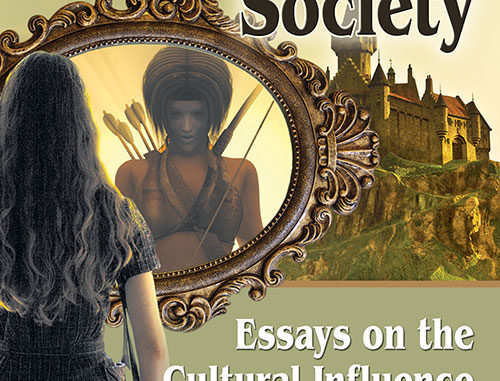
Review Fix chats with The Role-Playing Society: Essays on the Cultural Influence of RPGs co-

About the Book:
Since the release of Dungeons & Dragons in 1974, role-playing games (RPGs) have spawned a vibrant industry and subculture whose characteristics and player experiences have been well explored. Yet little attention has been devoted to the ways RPGs have shaped society at large over the last four decades.
Role-playing games influenced video game design, have been widely represented in film, television and other media, and have made their mark on education, social media, corporate training and the military.
This collection of new essays illustrates the broad appeal and impact of RPGs. Topics range from a critical reexamination of the Satanic Panic of the 1980s, to the growing significance of RPGs in education, to the potential for “serious†RPGs to provoke awareness and social change. The contributors discuss the myriad subtle (and not-so-subtle) ways in which the values, concepts and mechanics of RPGs have infiltrated popular culture.
About the Author:
Francesco Crocco is the associate director of the online writing lab at Excelsior College. His research interests include game-based learning, gamification, and utopian studies. He lives in Lafayette, Louisiana.
Review Fix: What inspired the creation of this book?
Francesco Crocco: That’s a great question. I’ve been a huge fan and player of RPGs for two decades, and I wanted to share both my love of the game and my passion for how I and others have adapted it to serve purposes other than entertainment. I’ve been using RPG elements to enhance the way I teach for quite a long time and I knew that others were doing so, as well. This led me to investigate how RPGs might have seeped into other aspects of our culture. Andrew and I put out a call for essays, and we were pleased to get a wide array of responses. It corroborated my sense that RPGs in specific and play in general have many practical applications in our society.
Review Fix: What makes the role playing community worthy of a book like this in your opinion?
Crocco: Well, you mean besides the fact that RPGs and their players are awesome and completely under-appreciated? Seriously, RPGs have been a topic of cultural and scholarly analysis for quite some time now. My exposure to the gamification industry that was cresting a few years ago convinced me that RPGs were alive and well in forms well beyond their intended purpose. RPG elements were being appropriated in novel and effective ways, yet RPGs, their designers, and player communities were not being credited. I thought a book like ours could help raise awareness about the significance of RPGs beyond the comic shop and game store.
Review Fix: What was the writing process like?
Crocco: Mostly a delight, actually. Andrew is a phenomenal scholar, editor, and co-ordinator. He’s also friendly and punctual. Working with him made the process of calling for papers, reviewing contributions, co-writing an introduction, and shepherding the book through the various stages to publication extremely enjoyable. Plus, we’re both D&D geeks who share a love of the game, which made the whole thing really fun. Also, the editorial staff at McFarland was unbelievable friendly and helpful. Finally, it was incredibly satisfying to write about something I love, which made the whole thing wonderful.
Review Fix: What did you learn through the writing process that you weren’t expecting?
Crocco: Hmm, I learned how hard it is to stay within word limits! Seriously, I had to cut a lot from my article. But I was glad that we were able to recycle content in other places. I also learned how to coordinate all the papers so that we didn’t overlap very much. I wanted each paper to offer a unique contribution. To help with that, Andrew and I co-wrote an introduction that provided a context for the rest of the papers by defining and historicizing RPGs.
Review Fix: What are your goals for the book?
Crocco: Mainly, I hope it helps people understand what RPGs are and why they are still important in so many ways. They’re not just an odd reference in an episode of Big Bang Theory. There’s substance to them and they have changed the world in their own way.
Review Fix: How would you like it to be remembered?
Crocco: As an important contribution to a serious field of study.
Review Fix: What’s next?
Crocco: Great question! I’m working on a manuscript for a book that investigates what education will look like in a world without work. This is premised on speculations about the way advanced automation will fundamentally transform our society and how play might replace work as the basis of a new society. You know, light stuff!


Leave a Reply